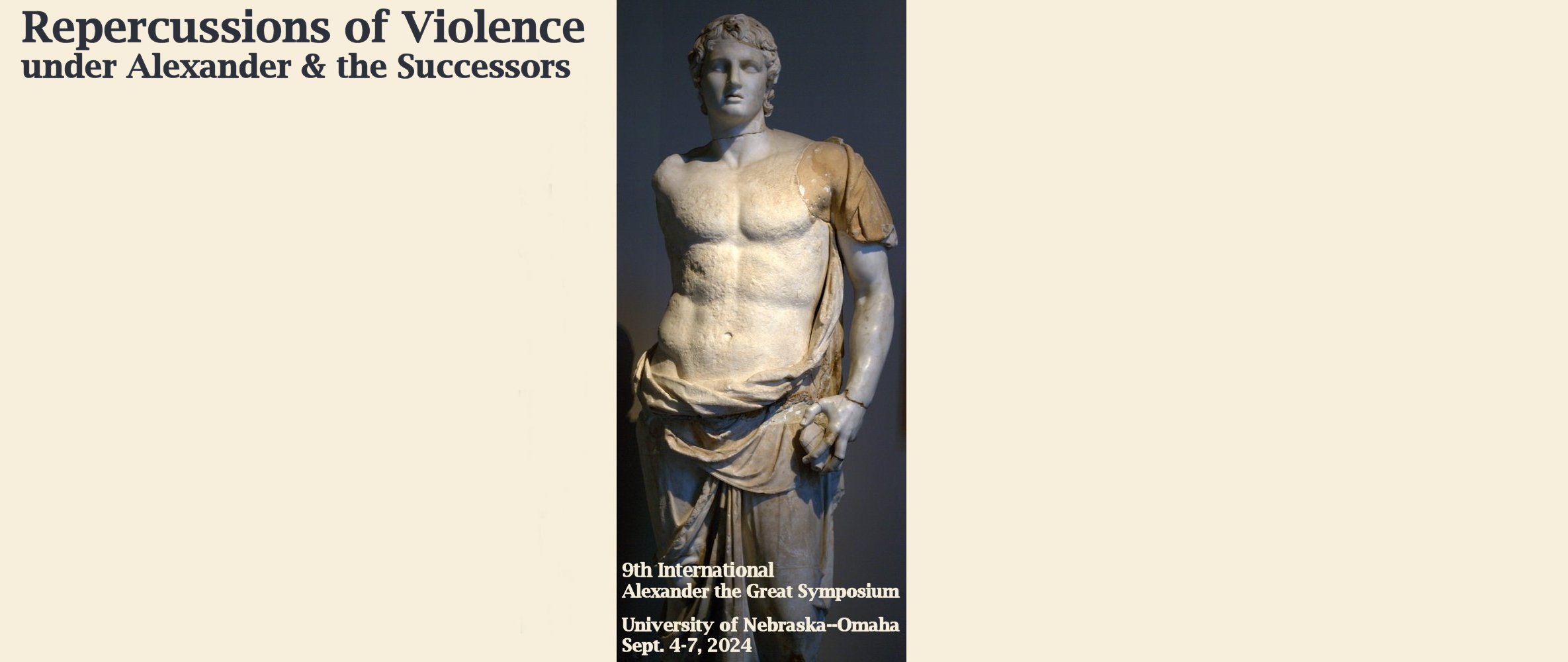Past Events
Repercussions of Violence Under Alexander and the Successors
9th International Alexander the Great Symposium

This event is sponsored by the South Dakota State University School of American and Global Studies, The Schwalb Center for Israel and Jewish Studies, Goldstein Center for Human Rights, Sam and Frances Fried Holocaust and Genocide Academy, Ancient Mediterranean Studies Program, Department of History, Department of Art History, Department of English, Department of Religious Studies, and Department of Philosophy.
De sua pecunia: Women as Benefactors in the Roman Empire
This event was presented by Rachel Meyers, Ph.D., an Associate Professor of Classical Studies at Iowa State University, in a virtual event on Wednesday, March 2, 2022.
Evidence for the Roman practice of public generosity comes from ancient texts, inscriptions, and archaeological remains. This philanthropic activity, including endowments, bequests, construction projects, and entertainment, was a common way for the wealthy to show off their resources, promote their family’s standing, and position themselves for public office.
Until recently, however, most female benefactors were pushed to the margins of scholarly inquiry or omitted entirely. While Roman women could not hold civic offices or military commands, they could acquire substantial wealth and engage in public life through priesthoods and public benefaction. This presentation features a large corpus of inscriptions from the Roman West that gives evidence for the numerous ways in which women used their financial resources for civic munificence. The data reveal geographical and chronological differences that help us gain a new understanding of women’s autonomy in the Roman Empire.
This event is organized by Ancient Mediterranean Studies and sponsored by the Dean of the College of Arts and Sciences at UNO.